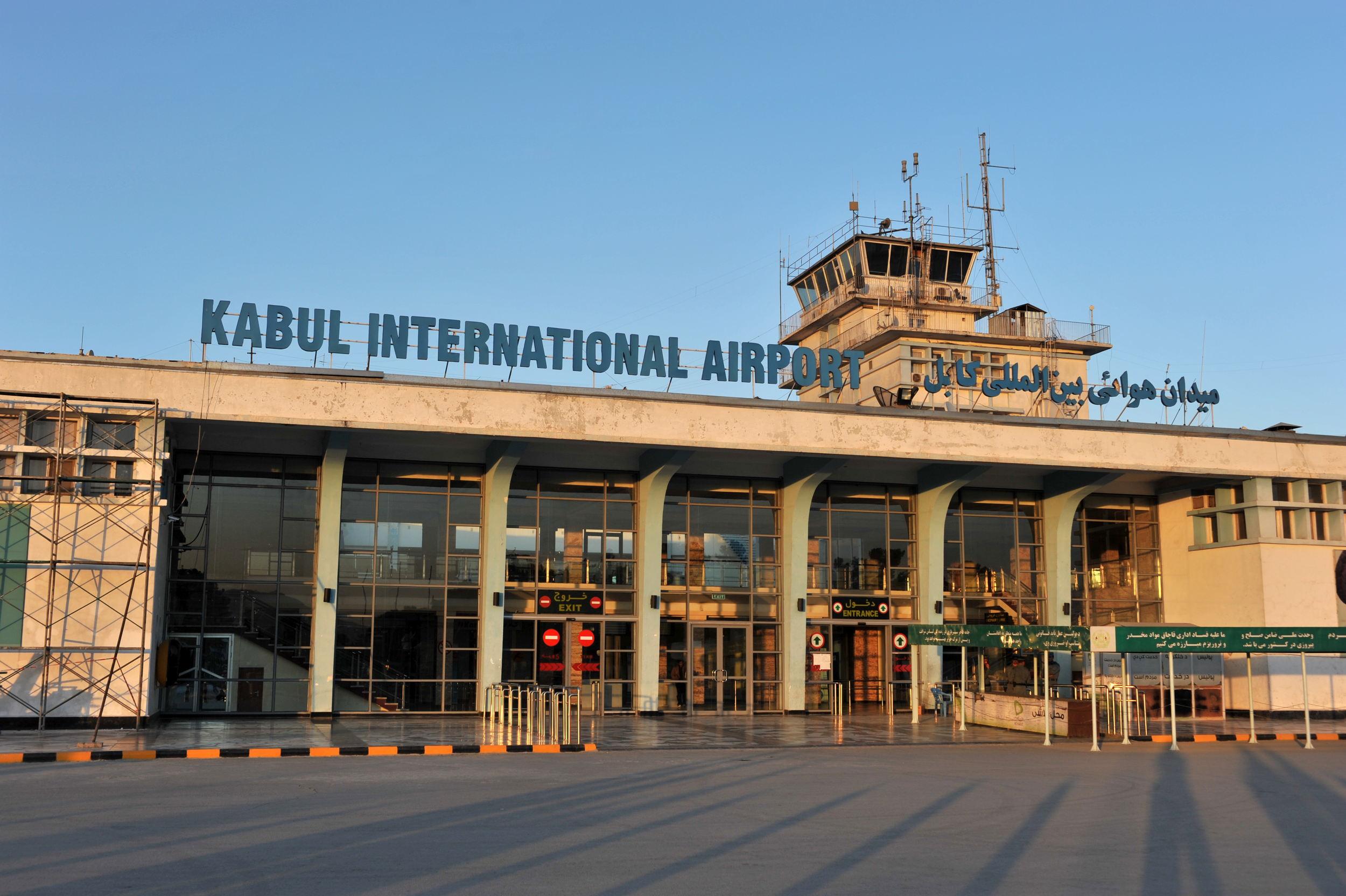
American Ingenuity
Congressional Casework in the Afghanistan Withdrawal
American Ingenuity
In August of 2021, US military forces withdrew from Afghanistan in a chaotic scene that left the Taliban in control of the Afghan capital, government, and Hamid Karzai International Airport (HKIA). Fearing retribution, Afghan citizens who had served with the United States military and contractors or otherwise assisted the US government were desperate to escape the country with their families.
In the context of the military withdrawal, Congressional offices received thousands of calls for help from Afghans on the ground in the country, their family members in the US and Afghanistan, and service members and veterans frantically trying to assist their interpreters, supporters, and friends. While these inquiries were way outside the realm of normal constituent communication, they were still funneled through the group of legislative staffers tasked with routine problem-solving on behalf of individual constituents: Congressional caseworkers.
Between April 2023 and January 2024, the POPVOX Foundation team interviewed Congressional caseworkers from both sides of the aisle and both chambers who handled casework related to the Afghanistan withdrawal. Interviewees were recruited through the author’s existing network of casework relationships and referrals. Interviewees were granted anonymity to share their experiences with candor, and are identified in this report only by chamber and party, with some exceptions where the interviewee had been previously quoted in the media. Additional materials, including hearing transcripts and journalistic accounts of the Afghanistan withdrawal, are cited where relevant. While no report can capture the full breadth of experiences of caseworkers handling the Afghanistan withdrawal, research for the report aimed for a balanced group of experienced caseworkers who could speak to the specific challenges of this crisis in a broader context.
POPVOX Foundation has been at the forefront of research and modernization efforts around Congressional casework since its founding in 2021. POPVOX Foundation’s Casework Navigator program provides resources to support caseworkers and elevate casework expertise as a vital component of Congress’s oversight responsibility. POPVOX Foundation Deputy Director Anne Meeker also previously testified to the House Select Committee on the Modernization of Congress on constituent services, and has written extensively on Congressional casework and pathways for modernization.
This report is a product of POPVOX Foundation. Its contents and recommendations are not endorsed by any Congressional office or entity.
Reflections on the Report
“Caseworkers are problem solvers. As Chairman of the Committee on House Administration, I’m focused on providing staff with the resources they need to serve constituents efficiently and effectively. The Subcommittee on Modernization led by Chairwoman Bice has been instrumental in helping modernize this institution to better serve every American and I look forward to seeing their work continue.” —Rep. Bryan Steil [R, WI], Chairman of the Committee on House Administration
“Amid the unprecedented challenges presented by the American withdrawal from Afghanistan, congressional caseworkers displayed the very best of American resourcefulness and compassion. Their efforts under extreme pressure and in the most difficult of circumstances underscore the essential nature of a well-functioning constituent services operation in every state and district. This report highlights the invaluable contributions of caseworkers during the withdrawal from Afghanistan. Also, it is a call to action for the modernization and overall improvement of our government’s ability to solve problems on behalf of the American people. Congress must heed this call to ensure staff are always properly equipped and well supported to handle any crisis with the same dedication and effectiveness demonstrated in August 2021.” —Rep. Derek Kilmer [D, WA]
“Going above and beyond to assist constituents is part of my team’s DNA. There is nothing that gives me greater pride than knowing my team wakes up every day focused on how they can help others. I applaud not only my colleagues, but other caseworkers across Congress, for their dedication to help Americans and our allies.” —Rep. Dusty Johnson [R, SD]
“I will never forget how my staff moved heaven and earth to help save lives during the fateful withdrawal from Afghanistan. The emotional and physical toll was very real, but we were all determined to evacuate as many Americans and Afghan allies as we could amidst the confusion and danger posed by the Taliban. POPVOX Foundation is doing incredible work to shine a light on the selfless dedication of caseworkers from all corners of Congress. This is what true public service looks like, and the more we can study these efforts, the more we can improve how our offices operate in future crises.” —Rep. Seth Moulton [D, MA]
“The Congressional caseworkers engaged in the #AfghanEvac effort have displayed unwavering dedication over the course of the last 2+ years since the fall of Kabul. From diverse backgrounds and representing states all across the nation, caseworkers in both chambers and from both sides of the aisle have been vital to this mission since August 2021. This report celebrates their invaluable contributions and resilience, ensuring that future caseworkers are equipped with the necessary tools and insights to provide those who reach out for assistance with the help they need. Their efforts, and the efforts of all involved, reflect the rich tapestry of American values and have created a lasting, generational impact.” —Shawn VanDiver, President and Chairman, #AfghanEvac
Executive Summary
In the US military withdrawal from Afghanistan, Congressional casework staff responded to thousands of urgent requests for support from at-risk Afghan citizens and family members who had served with the US military or contractors or otherwise assisted the US government. Congressional staff from offices in both parties and both chambers worked around the clock for weeks in close collaboration with federal agencies and nongovernmental organizations to identify thousands of at-risk Afghans to the State Department, help allies already in the immigration process identify options and move cases forward, and coordinate evacuees’ dangerous passage through the airport. Like many civil servants, veterans and other advocates touched by what became “Operation Allies Welcome (OAW)” and is now called “Enduring Welcome,” these Congressional caseworkers experienced the unfolding crisis in real time, demonstrating resilience, persistence, and creativity — but at significant personal cost.
The experience of Congressional caseworkers in the Afghanistan withdrawal is only a small piece of the larger story of the US military involvement in Afghanistan. However, as a case study, it illuminates an often overlooked area of nonpartisan collaboration and public service. For institutionalists and modernizers invested in strengthening the legislative branch, it is also an important example of the human toll of Congress’ underinvestment in its own capacity — and one that points to the strength, creativity, and dedication of the Congressional workforce.
This report presents a narrative account of Congressional casework in the Afghanistan withdrawal, and points to ways that Congress can tap into its strengths to evolve in the 21st century and beyond.
Key Findings
The burden of Afghanistan-related casework was unevenly spread across Congressional offices.
Some offices received thousands of inquiries, while others received very few. This was especially challenging for new offices and caseworkers with less expertise in handling immigration and military casework. While this was exaggerated in the Afghanistan withdrawal, it reflects ongoing challenges for Member offices in handling casework surges, particularly in disasters.
A “doom loop” of agency chaos created challenges in responding to Congressional offices.
A lack of timely public information from the State Department and others drove the “spillover” engagement with Congressional offices. Agencies’ inability to respond adequately and in a timely manner to Congressional requests drove caseworkers to escalate their responses by going outside or around established channels, creating additional problems for the agencies in responding to a challenging on-the-ground situation.
In response to these challenges, caseworkers developed new ways to self-organize in broad, fiercely nonpartisan networks spanning both chambers, and developed new methods of collaborating with external organizations.
Systems and networks created by caseworkers to manage information and collaboration in the Afghanistan withdrawal persist as methods of coordinating today.
Despite their professionalism, caseworkers faced an extraordinary mental health burden in handling this casework, symptoms of which persist today.
Key Recommendations
The House Digital Services’ Data Aggregator Pilot should receive funding at the direction of the House Legislative Branch Appropriations Subcommittee in conjunction with the Committee on House Administration.
The House Digital Service, at the recommendation of the House Select Committee on the Modernization of Congress, is in the process of scoping and prototyping a national casework data aggregator that would provide Congress with a real-time overview of constituent problems with federal agencies. This tool would be invaluable for casework teams and for oversight activities, and should receive funding to support its development.
Congress should develop minimum baseline standards for agency timeliness and best practices in responding to Congressional inquiries on behalf of constituents.
Exploratory work toward establishing these standards should also examine agency staffing and technology needs to meet minimum standards.
Caseworkers need specific mental health support to mitigate the risks associated with work with traumatized populations.
While the House and Senate Employee Assistance Programs have done outstanding work in supporting caseworkers, there is ongoing demand for trauma-informed support and resources that specifically address the challenges of casework. Accordingly, the Committee on House Administration and the Senate Rules Committee should direct the appropriate institutional offices to provide expanded resources to help staff cope with these circumstances.
The House should establish a nonpartisan Casework Liaison Office tasked with supporting casework and casework staff to promote the House’s ability to provide excellent constituent services.
Starting in the House may provide the opportunity to capitalize on existing modernization momentum, and allow later expansion to the Senate.
Additional Resources











